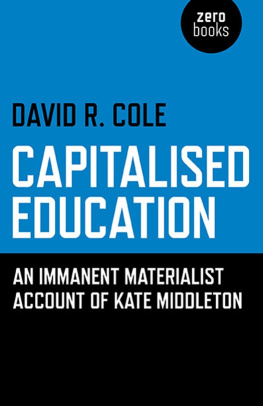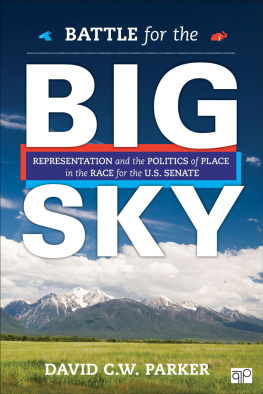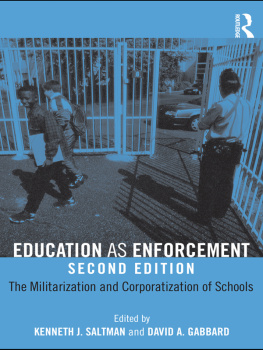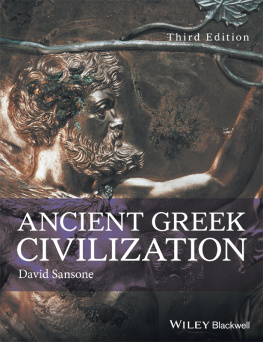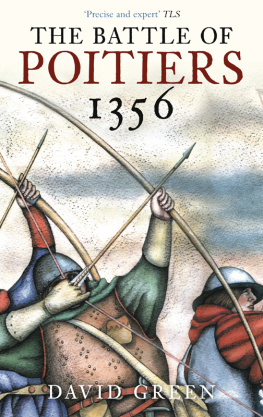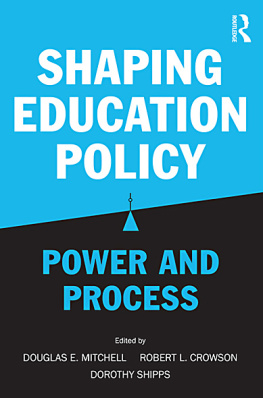David Detmer - Zinnophobia: The Battle Over History in Education, Politics, and Scholarship
Here you can read online David Detmer - Zinnophobia: The Battle Over History in Education, Politics, and Scholarship full text of the book (entire story) in english for free. Download pdf and epub, get meaning, cover and reviews about this ebook. year: 2018, publisher: Zero Books, genre: Politics. Description of the work, (preface) as well as reviews are available. Best literature library LitArk.com created for fans of good reading and offers a wide selection of genres:
Romance novel
Science fiction
Adventure
Detective
Science
History
Home and family
Prose
Art
Politics
Computer
Non-fiction
Religion
Business
Children
Humor
Choose a favorite category and find really read worthwhile books. Enjoy immersion in the world of imagination, feel the emotions of the characters or learn something new for yourself, make an fascinating discovery.

- Book:Zinnophobia: The Battle Over History in Education, Politics, and Scholarship
- Author:
- Publisher:Zero Books
- Genre:
- Year:2018
- Rating:4 / 5
- Favourites:Add to favourites
- Your mark:
- 80
- 1
- 2
- 3
- 4
- 5
Zinnophobia: The Battle Over History in Education, Politics, and Scholarship: summary, description and annotation
We offer to read an annotation, description, summary or preface (depends on what the author of the book "Zinnophobia: The Battle Over History in Education, Politics, and Scholarship" wrote himself). If you haven't found the necessary information about the book — write in the comments, we will try to find it.
Zinnophobia: The Battle Over History in Education, Politics, and Scholarship — read online for free the complete book (whole text) full work
Below is the text of the book, divided by pages. System saving the place of the last page read, allows you to conveniently read the book "Zinnophobia: The Battle Over History in Education, Politics, and Scholarship" online for free, without having to search again every time where you left off. Put a bookmark, and you can go to the page where you finished reading at any time.
Font size:
Interval:
Bookmark:

Ive been waiting for this book! Howard Zinns remarkably passionate and erudite work has attracted a huge readership, even while it has also been the target of shrill attacks by both politicians and academics, and not only rightwing academics. Now finally David Detmer has stepped up to the plate on Zinns behalf with a calm and careful dissection of the logic and evidence, and Zinn emerges as he should, unscathed and indeed triumphant!
Frances Fox Piven, Distinguished Professor of Political Science and Sociology at the Graduate School, CUNY, author of Challenging Authority: How Ordinary People Change America
In his life and work, Howard Zinn made an immeasurable contribution to a more educated, enlightened, and civilized generation of Americans, more aware of the authentic history of their country and inspired by his example of courage and integrity. While justly honored and admired for his accomplishments, these also aroused bitter resentment and anger in certain circles, and he was subjected to venomous, contemptible attacks. The critiques and vituperation are subjected to rigorous and informed exposure and refutation in this spirited and comprehensive defense of one of the most admirable figures of the modern period. A major contribution to bringing Zinns great contributions to even broader public attention, and exposing features of intellectual and political culture that are of no little interest.
Noam Chomsky, Institute Professor and Professor of Linguistics Emeritus, MIT, author of Who Rules the World?
David Detmer, a philosopher, has done what no historian to date has accomplishedhe has undertaken a systematic examination of Zinns critics arguments against him and basically has dismantled them. In the process he offers a clinic on how to evaluate the validity of other peoples arguments. Detmer has done justice to the complexity of Howard Zinns work and has evaluated Zinns critics fairly, if unsparingly. The book is written in clear and compelling proseit would be accessible to undergraduate students and could be used in History methods classes, in courses on critical thinking, and I would not be averse to assigning it in a graduate seminar.
Susan Curtis, Professor of History and American Studies, Purdue University
Detmer offers a fascinating look at the anti-liberal prejudices of Mitch Daniels, a powerful politician turned university president. He exposes the uneducated foundation of Daniels hatred for Howard Zinn, and reveals insights about broader attacks on intellectual freedom. But this is also a hopeful story, because the revelation of Daniels attempted censorship sparked a new wave of interest in Zinns work and the opportunity to examine his writings and his critics.
John K. Wilson, author, President Trump Unveiled: Exposing the Bigoted Billionaire

First published by Zero Books, 2018
Zero Books is an imprint of John Hunt Publishing Ltd., No. 3 East St., Alresford, Hampshire SO24 9EE, UK
www.johnhuntpublishing.com
www.zero-books.net
For distributor details and how to order please visit the Ordering section on our website.
Text copyright: David Detmer 2017
ISBN: 978 1 78535 678 0
978 1 78535 679 7 (ebook)
Library of Congress Control Number: 2017932885
All rights reserved. Except for brief quotations in critical articles or reviews, no part of this book may be reproduced in any manner without prior written permission from the publishers.
The rights of David Detmer as author have been asserted in accordance with the Copyright, Designs and Patents Act 1988.
A CIP catalogue record for this book is available from the British Library.
Design: Stuart Davies
Printed and bound by CPI Group (UK) Ltd, Croydon, CR0 4YY, UK
We operate a distinctive and ethical publishing philosophy in all areas of our business, from our global network of authors to production and worldwide distribution.
Also by David Detmer
Freedom as a Value
Challenging Postmodernism: Philosophy and the Politics of Truth
Sartre Explained
Phenomenology Explained
Howard Zinns A Peoples History of the United States, a perennial bestseller, offers a version of American history that differs substantially from previous accounts. Instead of the standard story, in which the wise and heroic deeds of presidents, Supreme Court justices, military and business leaders, and various other wealthy and powerful elites are celebrated, Zinn makes the case that, whenever progressive change has occurred, it has resulted from the struggles of ordinary peoplethose who have participated in popular movements agitating for peace, for racial and sexual equality, for improved working conditions, and for environmental protection, among other similar causes. And in opposition to the triumphalist bias of the more orthodox histories, in which the misdeeds of the powerful are either sanitized or erased altogether, Zinn shines a spotlight on official acts of enslaving Africans, slaughtering Indians, lying, breaking promises, violating treaties, trashing the Constitution, exploiting workers, bombing or massacring civilians, assassinating foreign leaders, sabotaging elections, and propping up brutal puppet dictators, among other transgressions.
Unsurprisingly, Zinns book has provoked strong, and widely divergent, reactions. As the continuing success of the book testifies (it was first published in 1980 and remains a bestseller 37 years later) many readers warmly welcome Zinns work. These include students of history who celebrate it as a vital corrective to the omissions and distortions of the standard surveys; radicals and political activists who are inspired by it; women, racial and ethnic minorities, and economically disadvantaged persons who are delighted to see their contributions to history recognized; and victims (or the children or grandchildren of victims) of U.S. power who appreciate seeing their victimization documented and its moral significance acknowledged.
But the reaction of many other readers (and non-readers who know of Zinns book only by reputation) has been one of loathing. Such has been the typical response of political conservatives, the wealthy and powerful, many mainstream historians, and everyone else whose sense of patriotism engenders a commitment to the idea that our nations leaders, traditions, and institutions are uniquely great and moral. Accordingly, Zinns work has received a great deal of harsh criticism.
And sometimes the negative reaction has taken the form of something stronger than mere criticism: attempted suppression. As a case in point, the event that sparked the writing of this book was the 2013 revelation that Mitch Daniels, the president of my university, Purdue (I am a professor of philosophy at one of its campuses), had in 2010, when he was Governor of my state (Indiana), attempted to ban the teaching of A Peoples History of the United States in the states public schools, an incident that is described in some detail in this book.
But the central focus of the book, as its title indicates, is not the Daniels/Zinn incident but rather the extraordinarily severe criticisms, indeed denunciations, that Zinn has received from some of his fellow historians and from a few other writers and scholars. Indeed, when Danielss actions came to light, through the publication of emails that he had intended to keep private, a substantial portion of the defense that he offered consisted simply of quoting the blistering invective of Zinns critics, many of whom, Daniels was quick to point out, were experts.
Font size:
Interval:
Bookmark:
Similar books «Zinnophobia: The Battle Over History in Education, Politics, and Scholarship»
Look at similar books to Zinnophobia: The Battle Over History in Education, Politics, and Scholarship. We have selected literature similar in name and meaning in the hope of providing readers with more options to find new, interesting, not yet read works.
Discussion, reviews of the book Zinnophobia: The Battle Over History in Education, Politics, and Scholarship and just readers' own opinions. Leave your comments, write what you think about the work, its meaning or the main characters. Specify what exactly you liked and what you didn't like, and why you think so.


